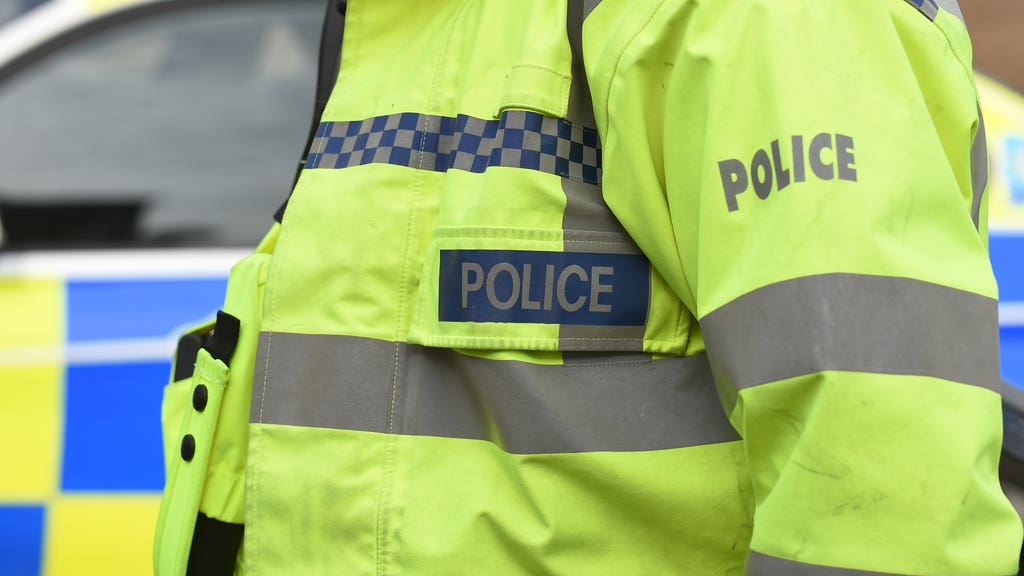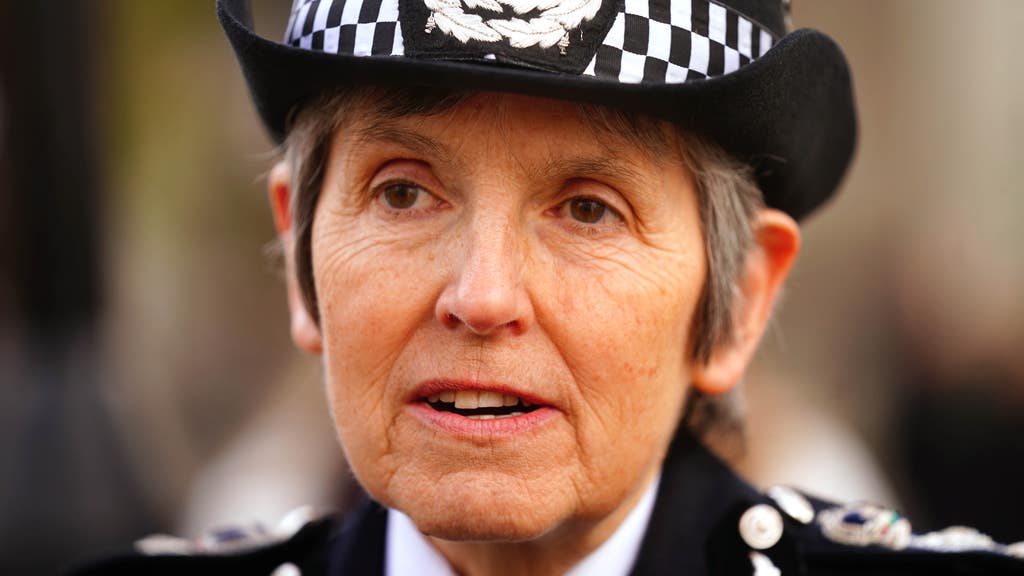Is there anyone left who doesn’t think the Metropolitan Police is racist?
The latest evidence is damning but nothing will change while the Met continues to look the other way

Your support helps us to tell the story
From reproductive rights to climate change to Big Tech, The Independent is on the ground when the story is developing. Whether it's investigating the financials of Elon Musk's pro-Trump PAC or producing our latest documentary, 'The A Word', which shines a light on the American women fighting for reproductive rights, we know how important it is to parse out the facts from the messaging.
At such a critical moment in US history, we need reporters on the ground. Your donation allows us to keep sending journalists to speak to both sides of the story.
The Independent is trusted by Americans across the entire political spectrum. And unlike many other quality news outlets, we choose not to lock Americans out of our reporting and analysis with paywalls. We believe quality journalism should be available to everyone, paid for by those who can afford it.
Your support makes all the difference.A series of racist messages exchanged by Metropolitan Police officers have been revealed by a watchdog, prompting recommendations for the service to tackle discrimination in its ranks and “commit publicly to being an anti-racist organisation”.
Details of messages from WhatsApp groups and a Facebook chat, including multiple references to racist and homophobic abuse, as well as rape and violence against women, were published by the Independent Office for Police Conduct (IOPC) on Tuesday.
The watchdog took the unusual step of publishing the messages in full – despite the offensive nature of the content – as it detailed the “disgraceful” behaviour of Metropolitan Police officers, who were part of a now disbanded Westminster team largely based at Charing Cross police station between 2016 and 2018.
I am glad about this, as the public now has the opportunity to read for themselves the abhorrent remarks exchanged among some of the public servants who have sworn to serve and protect us all.
What’s more, Black and Asian police officers spoke of being bullied and a culture of fear about raising complaints regarding this sort of behaviour, while evidence of the repeated mocking of non-Christian religions, the Black Lives Matter movement and racial discrimination was also uncovered, including the following:
- “Just walked past the big mosque all the fanatics turn up at to radicalise the young muslims...”
- “My dad kidnapped some African children and used them to make dog food”
- “PWPEHCLM – People with pre-existing heart conditions lives matter. Should of [sic] offered him a KitKat and a nice lie down. Murdering c*nts”
- “Some uniform or plain clothes work on Somalian rats … I battered one the other day … weighed less than [police officer’s name]”
- “Opened my balcony door and loads of flies flew into the front room. So I got the fly spray and turned my gaff into Auschwitz”
- A police officer sent another officer an image of a Black man wearing a white shirt. His colleague asked, “What’s good about it I don’t get it lol.” He replied: “Ignore the robber… I like the shirt.”
When even those who work within an organisation are scared to hold it accountable then the institution is at fault.
This probe, known as Operation Hotton, was sparked by the murder of Sarah Everard by then-serving officer Wayne Couzens – but additional damning messages were revealed.
The much-needed transformation within the Met, which the IOPC has called for, isn’t going to happen until those at the helm have honest conversations about the bigotry that blights the service; after all, this isn’t a “today” problem. The issue has been ongoing.
On Tuesday, The Independent revealed that the Met is facing legal action over its “racially discriminatory” gangs matrix database. In a letter to the force seen by this newspaper, human rights organisation Liberty warned that the gangs matrix discriminates against ethnic minority groups, especially Black people who are disproportionately represented on the database.
The charity is acting on behalf of Awate Suleiman, a musician and writer who attempted for two years to find whether he had been placed on the database, and not-for-profit UNJUST.

This only echoes concerns held by many people of ethnic minority backgrounds that the Met is institutionally racist – something its commissioner Cressida Dick has dismissed as being unhelpful.
Following recent Black Lives Matter demonstrations post-George Floyd, Ms Dick told me: “In relation to the phrase ‘institutionally racist’, what I have consistently said is I do think that’s for others to judge; I don’t find it a useful or appropriate phrase for my service at the moment but if others judge us differently that’s obviously their right.
“What I do recognise is that people have concerns about the nature of interactions that we sometimes have with members of our Black communities.”
Indeed, following evidence uncovered through Operation Hotton, the IOPC concluded that it “could bring the police service into disrepute and undermine public confidence in the MPS and further undermine public confidence and support the picture of unfair treatment of Black, Asian and Ethnic Minority (BAME) groups by the police”.
“Exposure of these communications and behaviour is likely to impact on Bame groups the most, who already have low confidence in the police,” the watchdog went on to state in its report. “Therefore, it is imperative that these sorts of behaviours are addressed and the [Met] set clear standards that this is unacceptable.”
So, we have a problem: confidence in policing is low and is being further exacerbated by examples such as those revealed in Operation Hotton.
Responding to recent revelations, mayor of London Sadiq Khan said: “Anyone found to be responsible for sexism, racism, misogyny, Islamophobia, antisemitism, bullying or harassment does not deserve to wear the Met uniform and must be rooted out.”

Again, you can’t root out something if the gatekeepers want the public to believe no problem exists. But these are not one-off instances or a case of a “a few bad apples”; no one is buying these excuses because the challenge goes beyond that. We’re talking about a culture within the force where racism has been allowed to flourish, where campaigners pointing this out attracts more condemnation than the actual problem itself and the political class refuses to accept this reality.
The MacPherson Inquiry branded the Met as “institutionally racist” in 1999. Twenty years later, little has changed. In lieu of a similar inquiry being conducted to measure what progress has taken place, it’s reasonable to deduce that the service is still afflicted with the same curse. Some nine officers implicated in Operation Hotton are still serving with the force, while another is working as a contractor in a staff role; that doesn’t exactly scream zero tolerance does it?
To keep up to speed with all the latest opinions and comment sign up to our free weekly Voices newsletter by clicking here
Remember: systemic racism isn’t about every individual within that organisation being racist; it’s about the constructs of power therein, who is disadvantaged and how. I touched on this issue of trust in policing and Black communities just a few weeks ago following the police’s decision to investigate Black Tory mayoral candidate Shaun Bailey’s Covid rule-breaking party – but none of the other Whitehall extravaganzas held by his white political colleagues.
A YouGov poll of minority ethnic Britons – shared exclusively with The Independent – shows that trust in police among minority ethnic Britons dropped sharply in the past year, with most now no longer having faith in UK police force.
In order to function properly as a society, we need effective policing and the Met, along with other forces, is falling short.

Join our commenting forum
Join thought-provoking conversations, follow other Independent readers and see their replies
Comments